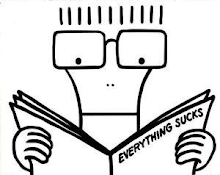At TheSportsEconomist.com the author visits this topic briefly in response to an article at ESPN.com. In the article from ESPN.com, Greg Easterbrook writes, "Imagine how high prices might skyrocket if hot teams such as the Patriots or Colts, or perennial-sellout teams such as the Broncos, Giants, Jets, Redskins, Chiefs or Steelers, took bids for their 2008 season tickets rather than selling them at face value." Sounds scary, right? Well despite this comment, Easterbrook seems to have no real issue with ticket brokerage, affirming that it is here to stay and that it is only a matter of time before professional sports franchises and music promoters begin auctioning their tickets - considering this year ticket brokerage profits, as The Economist writes "are expected to top $3 billion" - and as I write this, states are appealing the anti-scalping laws that, in some states, have been in place since the 60s.
Apparently he is forgetting that the Chicago Cubs have already begun doing such - and legally! Their excuse, according to James Klenk, "we think it offers consumers a better product, at better prices, than other ticket brokers."
But is this right? Is this what we as the sports attending fan want? Certainly there are luxuries of brokerage firms - such as being able to forget when tickets are going on sale or the possibility of purchasing the tickets for less then face value or even obtaining the unobtainable. But lets be honest, brokerage firms are around to make a buck, so while you may luck out occasionally with the golden ticket, more often then not it is going to be the fan who loses out - and is that something event organizers want, the paying customer to lose out?
Let us also consider, that ticket brokers who buy up tickets - presumably seasons tickets in order to maximize their profits - that may or may not have been otherwise purchased which invariably drives up the cost of the tickets to start with based purely on supply and demand (not to mention the loss of the true fan from some sporting events). As it stands, I'm not certain why, as Easterbrook writes, franchises give discounts to season ticket holders if they are confident they will simply be resold, why give scalpers a break? According to Stephen K. Happel and Marianne M. Jennings who wrote a lengthy piece on The Folly of Anti-Scalping Laws, "Jerry Colangelo, president of the Phoenix Suns, spoke to a group of students at Arizona State University and indicated that he disliked scalpers because "they made money off of him without his permission, and that was not right.''" FINALLY someone in the upper ranks being honest, lets just hope the Suns don't lead the ticket bidding wave.
Clearly the ownership group of a franchise wants a sell out, that is where they make their money. As Happel and Jennings write "One reason for the full capacity desire centers on the demand dynamics associated with the crowd effect. The perception that an event will be a sellout attracts consumers into the ticket market who would not attend otherwise, and the ambience from a sellout may intensify the demand by consumers for future events." Let me focus on this idea of the fan who would not otherwise attend. I believe the writers are talking about bandwagon jumpers, or worse spotlight fans. You know, the fans who go to the game to say they were at the game, the ones who leave early to "beat the traffic" or accidentally show up late.
So according to the research and articles printed, scalping is not going away anytime soon. However, it is my belief that if organizations do not effectively do something about this situation, it may end up biting them the hardest. In closing, this is the introduction to the aforementioned The Economist article, hopefully reason and ration will win this war...
IT WAS an expensive but instructive paper clip. Earlier this year a Missouri man ostensibly broke the state's anti-ticket-touting law by selling two tickets to a Cardinals-Cubs baseball game for $79 above their face value. When confronted he explained that he had not marked up the ticket price: the $79 purchased a “decorative paperclip” to fasten the tickets.Oh, and as hilarious as it may seem, there is a National Association of Ticket Brokers (NATB). As if being a criminal was not enough.




















No comments:
Post a Comment